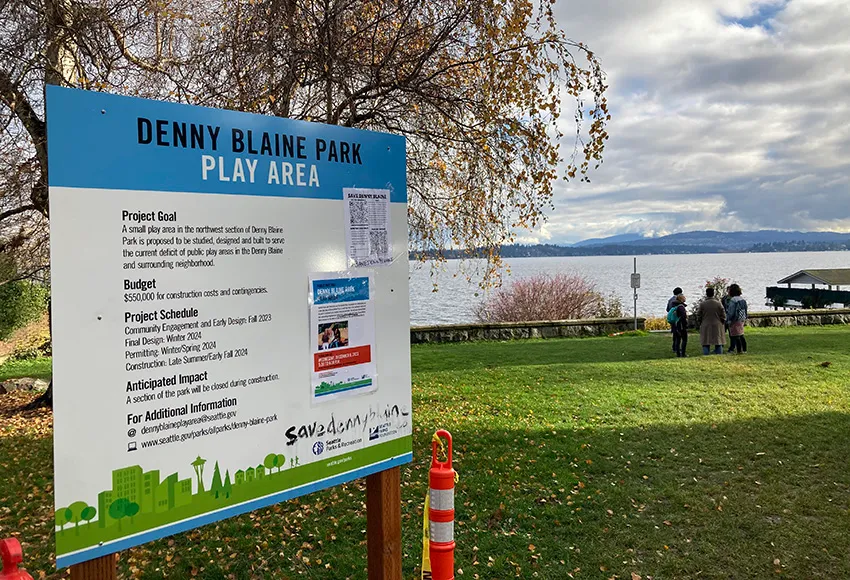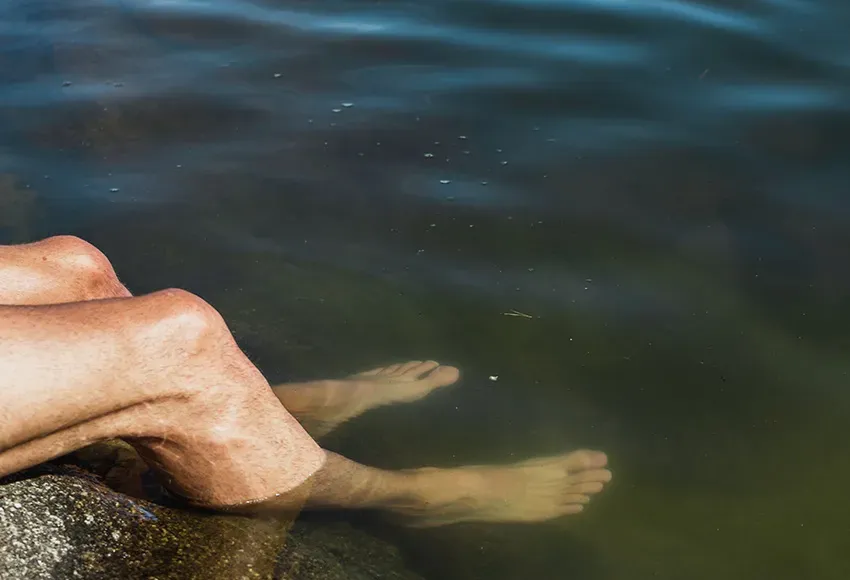It has been a month since a Seattle city department granted Denny-Blaine Park a reprieve as a safe space for nudists and Queers. A proposed children's play area at the park, funded almost entirely by a single anonymous donor, would likely have led to conflict between the nude sunbathers and local residents and parents. Protesters mobilized to prevent possible clashes with offended parents in the cherished area.
Following a spirited community meeting that demonstrated overwhelming support for the current character of the park, which the SGN covered, the Seattle Parks and Recreation Department (SPR) very quickly scrapped the project.
This debacle, however, is only the latest in a long history of residents and city officials demonstrating animosity toward public nudity.
This history has gone on long enough. Now that the immediate threat is over, it is time to have the City of Seattle officially designate Denny-Blaine Park as a clothing-optional space.
A history of friction
In December, the SGN filed a Freedom of Information Act request for documents related to the city's process of planning and surveying this disruptive project. The City responded to the SGN's request with the first of what are several planned installments.
This batch contains archival evidence of a long, protracted history of friction between Seattle nudists and other community members, with city officials time and time again failing to protect nudists from the scruples of some of the more easily offended residents.
These records include news articles, letters of complaint, and official correspondence by city employees concerning these complaints. These letters date as far back as June and August of 1952, when Seattle Parks and Recreation officials responded to a complaint by neighborhood resident Louis Dulien protesting the use of the park as a public bathing beach – though not yet a nude beach.
Dulien expressed his disapproval at the lack of sanitary facilities and refuse collection, and complained about people trespassing on his property, saying that they were "making use of our property for their convenience" and causing damage to his fence.
Internal correspondence between the city's legal counsel, A.C. van Soelen, with then-superintendent of SPR Paul Brown set the precedent for the tensions in the decades to come.
According to the letter, "[T]he city would not be liable for damages...unless that it can be said that the city is maintaining a 'nuisance' in the legal sense in this area ... [I]t appears that the Parks Department is not operating the park or the adjoining public area as a public bathing beach and maintains no facilities for [that], and seeks to discourage such use."
To this day, this bureaucratic strategy means that Denny-Blaine Park still lacks public restrooms, drinking water, and refuse facilities.

Ambiguity with public offense
The city's response to Dulien established the pattern with which it would engage park users in the coming years. Neither the State of Washington's nor the City of Seattle's laws and regulations prohibit public nudity, with the caveat that such nudity can't be "indecent" or "disruptive," with the general approach being that as long as nobody is offended, nudity is fine.
The ambiguity of that phrasing has periodically, and with some consistency, led to conflict between nudists and Seattle police and residents.
This first trove of documents contains several articles from local news outlets such as the Seattle Times that record such incidents. These articles date from 1974 to 2010 and tend to feature a similar pattern: residents encounter nudists, claim offense, and report to law enforcement, and in return there arises a public outcry.
One notable instance of this sort of conflict was reported in the Seattle Times in August and September 2004, in which resident Randy Hansen called police on nudists rallying in Discovery Park to call on the city to designate an official clothing-optional beach. The article quotes Hansen as saying, "I should not have to rearrange my plans," referring to a beach outing he had planned with his grandchildren.
The Seattle Times said, "To make a point, Hansen is considering showing up at the beach and being the one to take offense."
Pushing for an official designation
Seattle's laws concerning public decency may allow for nudity, but they do not protect nudists from residents such as Hansen, nor the one who proposed a children's play area at Denny-Blaine Park. An official clothing-optional designation, however, would set the expectation that the site is a place for nudism, forestalling claims of offense and protecting nudist expressions from interference.
Yet city leaders have a history of relying on bureaucratic methods of evading calls to protect public nudity. The City Council refused to take up the issue in 1985, and in 2010, SPR also refused, saying through a spokesperson that Superintendent Christopher Williams did not believe there was sufficient public support, and would not act to provide such designation without it.
If December's public meeting shows anything, it's that public support should now meet Williams's threshold. With the latest effort to protect Denny-Blaine Park now past, it's time to tell city leaders and easily offended residents to stop coming for nudists.
This cycle has to stop. It is time to demand the protection of a clothing-optional designation. Free expression in Seattle has to endure.
SGN has an ongoing FOIA request with the City of Seattle. Further updates on Denny-Blaine Park may be forthcoming as these records become available.


